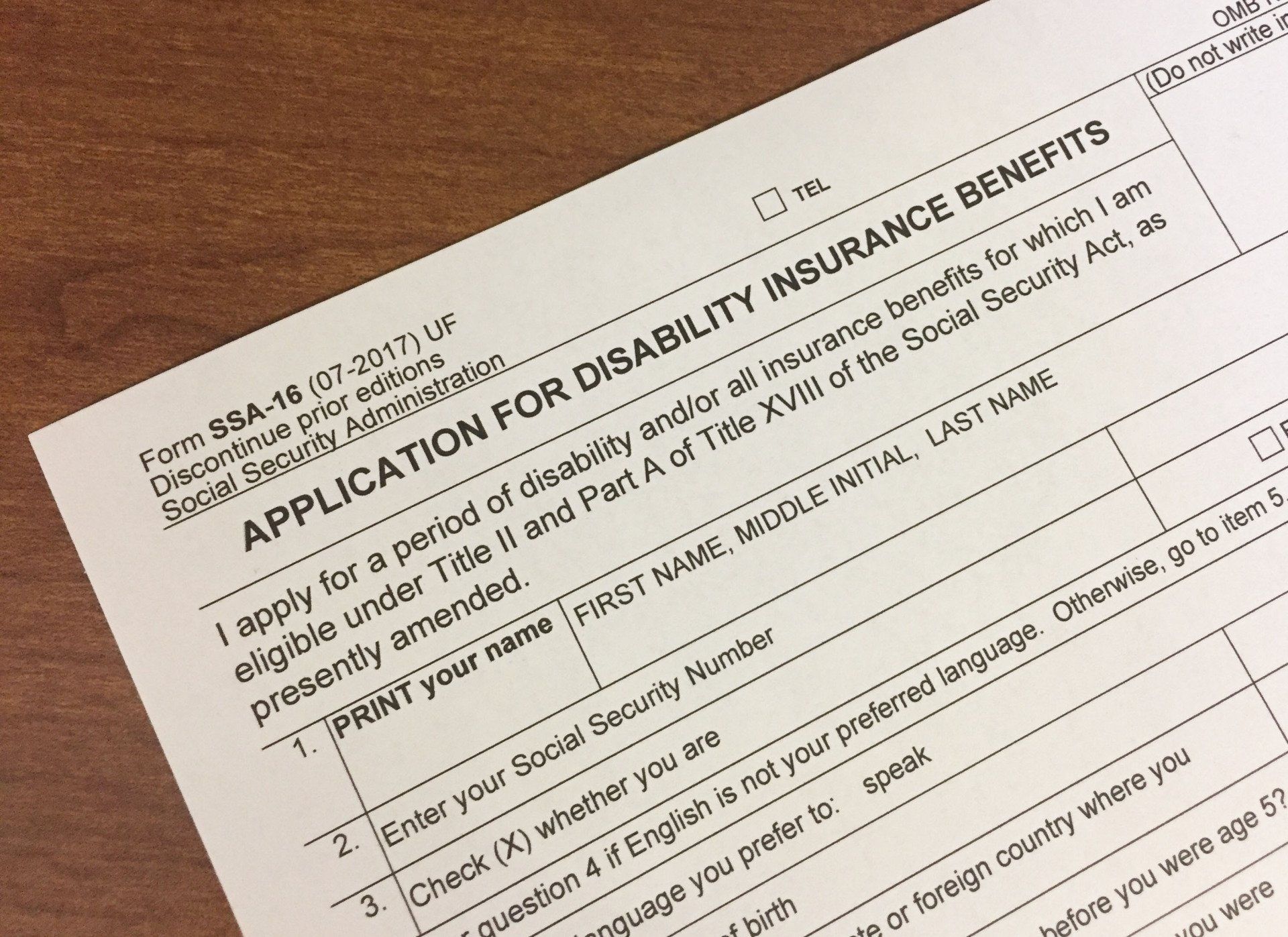What to Expect During Your Workers' Compensation Case
Navigating a workers' compensation case with a disability attorney can feel overwhelming, especially when you're already managing the physical and emotional impact of a workplace injury. From filing your initial claim to resolving disputes and securing the benefits you deserve, each step involves specific requirements and careful attention to detail. Understanding the process not only helps you protect your rights but also gives you a clearer sense of control during a challenging time.
Filing the Initial Claim
The first step in any workers' compensation case is filing the initial claim. It's essential to notify your employer as soon as the injury occurs, as this notification sets the formal process in motion. State laws vary, but typically you have a limited timeframe to report your injury. Understanding these deadlines is crucial to ensuring your claim can proceed without unnecessary hurdles.
Filling out the claim form is another critical step and usually requires detailed information about the nature of your injury and circumstances surrounding the incident. Your initial claim form serves as the foundation of your case. Missteps or incomplete information can lead to delays or rejections, so precision is vital. Work closely with your HR department or a legal professional if needed to ensure accuracy. Keeping all documentation organized will support your case and streamline the process for the disability attorney.
Comprehensively documenting your injury and subsequent medical treatment plays a pivotal role in your workers' compensation claim. This includes obtaining medical records, receipts, and any relevant correspondence. Your employer also has a role in facilitating the claims process by submitting your claim to their insurance provider. Establishing clear communication with your employer can alleviate misunderstandings and foster a collaborative environment.
The Investigation Process
Once you file a claim, the investigation process is initiated to verify the details of your injury. During this phase, the insurer seeks to substantiate your claim through various methods. For instance, they might review medical records, conduct interviews, and assess workplace safety protocols. Every detail, from accident reports to witness statements, can play a decisive role.
Surveillance and interviews are common tools insurers utilize to validate claims. They may conduct interviews with you, coworkers, and your employer to gather more context. Surveillance is also within their scope, sometimes used to disprove claims, especially when fraud is suspected. Though this can feel invasive, it's a standard part of the process.
A significant component of the investigation involves the Independent Medical Examination (IME). This assessment helps determine the extent of your injuries and necessary medical treatment. Conducted by a neutral third-party physician, the IME provides an objective analysis crucial for your case. This impartial evaluation can substantively influence your benefits eligibility.
Benefits You May Receive
Workers' compensation benefits are designed to cover various needs that may arise from workplace injuries. Primarily, medical treatment coverage ensures that all necessary healthcare related to your injury is provided. This includes hospital visits, surgeries, medications, and rehabilitation. Such comprehensive care is essential for recovery and is afforded regardless of fault for the incident.
Beyond medical coverage, financial assistance is available in the form of temporary or permanent disability benefits. Temporary disability benefits aim to replace a portion of your wages while you recover. If your injury results in a long-term or permanent impairment, you might qualify for permanent disability benefits, calculated on various factors, including injury severity. According to USA Facts, disability benefits are applied for by about 2 million Americans every year, highlighting the widespread reliance on these programs for financial stability.
Additionally, vocational rehabilitation services offer resources and support to help you transition back into the workforce, either through the same job in a different capacity or a new position altogether. These services include job retraining and education programs and can significantly aid in overcoming employment barriers post-injury. For some cases, a lump-sum settlement may be agreed upon by the disability attorney to resolve your claim definitively.
Handling Disputes
Disputes unfortunately may arise during a workers' compensation case, often due to disagreements over the injury's coverage or benefit amounts. Common reasons include insurers contesting the injury's validity or the extent of treatment required. Should this occur, understanding dispute resolution mechanisms is crucial for navigating through complex challenges. Remaining calm and prepared, backed by thorough documentation, allows the disability attorney to present your case effectively.
Resolving these disputes begins with gathering evidence to support your position, including medical records and expert testimonies if necessary. Communication with your insurer or through your legal representative might lead to a settlement. However, should negotiations reach a stalemate, formal mediation is the next step. Mediation encourages mutually beneficial solutions by facilitating conversations with a neutral third-party mediator.
If mediation fails, you may need to proceed to a formal hearing where evidence is presented before a judge or workers' compensation board. Here, a detailed examination of all aspects determines the outcome. The formal setting means sturdy representation and documentation are crucial for success. Following an unfavorable decision, understanding the appeals process enables further pursuit of favorable benefit adjustments.
The Impact on Your Employment
A workers' compensation claim inevitably influences your employment, sometimes leading to periods of absence or altered duties. Job protection laws, such as FMLA, may offer some reassurance by securing your position during medical leave. However, clarity on your rights is vital to prevent unwarranted terminations or detrimental work environment changes. Your eligibility for job protection after filing a claim should be evaluated carefully, ensuring compliance with all legal statutes.
Returning to work involves assessing potential adaptations, like light-duty assignments, based on medical recommendations. Employers must accommodate these needs under certain conditions, facilitating a suitable work environment. Open dialogue about work limitations promotes a smooth transition while safeguarding health. Nevertheless, situations may arise where retaliation or unfavorable changes in your duties could occur, infringing on legal protections.
Moreover, an injury affecting long-term employment may necessitate career adjustments or retraining. Whether transitioning within the same organization or stepping into different roles entirely, planning is essential. Vocational rehabilitation efforts can assist by devising a comprehensive strategy. This involves not only physical but also psychological readiness to embrace new opportunities.
Closing Your Case
Concluding a workers' compensation case involves finalizing the settlement terms, which may be through a structured settlement or lump-sum agreement. The decision should factor in potential future medical costs and financial security. A careful review of settlement offers ensures alignment with your recovery trajectory. Professional advice by a disability attorney can greatly assist in evaluating the fairness of a proposal.
Sometimes, despite a settlement, ongoing medical treatment might still be required, necessitating a compromise and release agreement approach. This contract confirms the terms under which treatment reimbursement continues. Focusing on future stability necessitates understanding and protecting your long-term health needs. Ensuring all due benefits are administered correctly involves diligent record-keeping and review, safeguarding entitlements.
Long-term impact from a workers' compensation claim may extend beyond financial aspects and influence various life dimensions. Keeping detailed records of all relevant documentation could affect future benefits eligibility or claims. Moreover, understanding the case's resolution ensures foundational knowledge in case of similar future incidents.
Workers' compensation cases with a disability attorney can be complex, but knowledge and preparation are your strongest allies. By understanding each stage, you can advocate effectively for your benefits and safeguard your future. If you're navigating a workers' compensation or disability claim, Russell W Pope, Sr. LLC can provide the guidance and support you need to understand your rights, streamline your claim, and maximize the benefits you deserve. Contact us today to get started.







Share On: